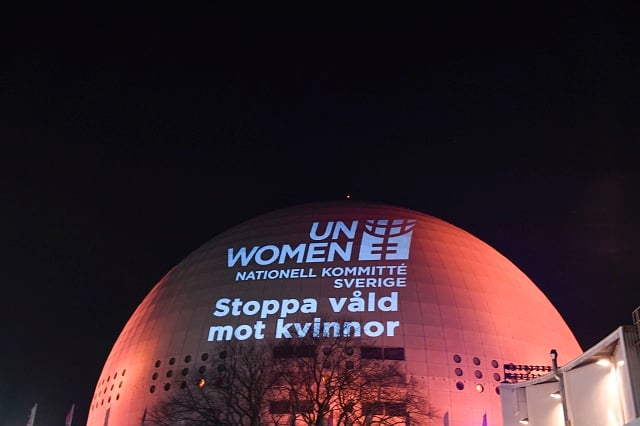The potential cause of the increase is not yet clear, but an expert at Brå told The Local the high figure was “surprising”.
Overall, the number of cases of deadly violence in Sweden fell slightly in 2018, but remains at a high level with 108 such cases reported, down from 113 the year before (of which five victims were killed in the April terror attack, including four women). The term 'deadly violence' refers to crimes classified as murder, manslaughter, and assault which led to the victim's death.
One of the biggest changes year on year was the proportion of incidents of deadly violence in which the perpetrator was a partner or ex-partner of the victim.
Almost a quarter of the cases, 26 in total, were carried out by a partner or ex-partner – more than twice as many as the previous year, when there were only 11 such cases.
Although most victims of deadly violence were male (69 percent), most people killed by a partner or ex-partner were women, with this kind of violence accounting for 67 percent of all murders of women: 22 women in total.
Only five percent of the men who were victims of deadly violence were attacked by a partner or ex-partner.
The proportion of women who were victims of deadly violence in general remained unchanged; a Brå report from 2017 stated that “the victim is a woman in around a third of all cases of deadly violence, and this has been the case throughout the 25 years that Brå has collected information”. This was also the case in 2018.
Over the period 2012-2017, an average of 25 women died each year because of deadly violence, but the number who died at the hands of their current or former partner was around half that figure.
Between 1990-1995, an average of 17 women died each year at the hands of a current or former partner, a figure that fell to 14 women each year by the period 2010-2015. In 2014, a total of 16 women were killed by a partner or an ex, and 12 women were killed in 2015.
In 2018, 22 women and four men died due to domestic violence, meaning that the figure for women (Brå did not have available figures for men) was much higher than the average figures from the past few decades.
“The number of 22 is very high over average, so it's surprising, actually,” Nina Forelius from Brå told The Local.
However, she noted that variations sometimes occur year-to-year, and that the apparent stark rise “doesn't necessarily mean anything” in terms of long-term trends or specific causes.
She added that the figures were “statistics, not an analysis” and said: “In June, Brå is releasing a research report, which is an in-depth study [into deadly violence] in which we'll look at perpetrators, methods, and this kind of factor.”
If you need to speak to someone about domestic violence, you can contact Kvinnofridslinjen, Sweden's National Women's Helpline on 020-50 50 50, or Akillesjouren, a helpline for men suffering from domestic violence, on 08-29 63 99.



 Please whitelist us to continue reading.
Please whitelist us to continue reading.
Member comments